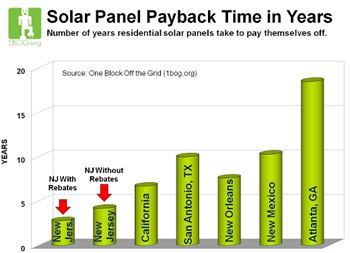Payback Time
'Payback' is the time it takes you to recoup the financial outlay you make when you buy a new device. New devices are made to be more fuel efficient - this means that each time you switch it on and use it you will use less electricity or gas. Your fuel bills will therefore fall. You can work out how long it will take for you to be 'paid back' by the new machine. 'Payback' is also used for home improvements such as cavity wall insulation or double glazing. You have to work out how long it takes for you to recoup your capital outlay by totting up the savings on your fuel bills. Tackling the questionsHow long is the payback period
These questions are basically maths questions... no physics in sight! They can wrap them up in all sorts of ways. For example 'Reducing the price of a fridge in a sale reduces the payback from 12 years to 8 years, if the original price of the fridge was £300 how much money will you save each year on your fuel bills if you buy the new fridge at the sale price?'' Payback is reduced by a third (from 12 years to 8 years) - so the price must have been reduced by a third (one third of £300 is £100 - so it will be £100 lower). That means in the sale it is £200. That £200 is equal to 8 years payback - so payback per year is £200/8 = £25. You will therefore save £25 a year on fuel bills. (I preferred good old fashioned physics calcs myself... but we must move with the times!). So payback relates to refilling your wallet with your outlay. It does not include the interest you would have got on that money if you kept it in a deposit account, or the finance outlay of interest you will pay if you buy on hire purchase agreement. It also does not include the 'insurance' premium the stores try to get you to take out when you buy a new device - or the delivery costs. ---------------------------------------------- The second half of such a question asks you about whether buying an energy efficient machine is actually 'good for the planet'. There are several points you can make on this: For buying a new device:
Against buying a new device until it is necessary to replace it:
|
Follow me...
|


 This really has nothing to do with Physics - it is now on the GCSE syllabus so that candidates realise what is meant by this term - which is far more to do with economics! That is because syllabuses not only want you to learn the science but also understand the impact science has on your life.
This really has nothing to do with Physics - it is now on the GCSE syllabus so that candidates realise what is meant by this term - which is far more to do with economics! That is because syllabuses not only want you to learn the science but also understand the impact science has on your life.


